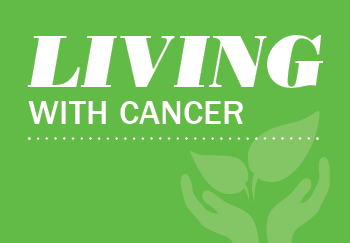 For much of the past, treating cancer meant strict adherence to guidelines of Western medicine. Doctors approached cancer treatment as a process, using medications, surgery and radiation therapy to cure the disease or help manage symptoms. But as research into medical science evolved, many healthcare providers have come to realize the benefits of complementary and alternative medicine (CAM) in the treatment of many forms of cancer.
For much of the past, treating cancer meant strict adherence to guidelines of Western medicine. Doctors approached cancer treatment as a process, using medications, surgery and radiation therapy to cure the disease or help manage symptoms. But as research into medical science evolved, many healthcare providers have come to realize the benefits of complementary and alternative medicine (CAM) in the treatment of many forms of cancer.
CAM, including biofeedback therapy, acupuncture, massage and herbal medicines are outside the standard practices of modern medical care. However, these types of interventions can provide measurable benefits to people living with cancer. Many people being treated for cancer choose to explore biofeedback therapy, which helps manage certain cancer symptoms and promotes relaxation.
While this therapy and other CAM interventions can be beneficial, it’s important to talk with your doctor before beginning any CAM treatment. Certain therapies, like some herbal supplements, can interfere with other medications your doctor prescribes. Checking with your doctor about the CAM therapy you’d like to use is the best way to stay as safe and healthy as possible.
What Is Biofeedback Therapy?
According to the Canadian Cancer Society, biofeedback therapy is a way to help you learn to better control your body and your response to stress. In most cases, a biofeedback therapist helps guide you through each treatment session. At the beginning of the session, your therapist places small electrodes on your skin to measure body functions like your heart rate, blood pressure and muscle tension. The information the electrodes gather is sent to a special machine that gives immediate feedback about your bodily functions.
Knowing what’s going on inside your body in real-time helps you become more aware of your physiological response to certain stressors. This information can be used to develop better relaxation techniques, as well as methods of handling specific symptoms you may experience.
Biofeedback Therapy and Cancer Treatment
While biofeedback does not cure cancer, it can be used to manage anxiety, stress and certain symptoms that many people living with cancer experience. It’s often difficult to relax if you’re undergoing cancer treatment, but biofeedback can help you learn to better control your body’s response to stress. During a biofeedback session, your therapist shows you different relaxation techniques which, according to the National Center for Complementary and Integrative Health, include:
- Deep breathing
- Guided imagery
- Mindfulness meditation
- Progressive muscle relaxation
- Self-hypnosis
Practicing these techniques helps promote natural relaxation and can help slow your breathing, lower your heart rate and blood pressure and give you a greater sense of well-being. Additionally, some research indicates these techniques are useful for managing symptoms which may occur during cancer treatment, like chemotherapy-induced nausea.
Considering Biofeedback Therapy?
Though biofeedback therapy can be beneficial, talk to your doctor before beginning treatment to ensure it’s right for you. Find a doctor at UVA Cancer Center.
But the benefits of CAM therapies like biofeedback don’t end there. Many people experience symptoms long after chemotherapy has ended. This condition, often called “chemo brain,” may cause problems like trouble sleeping, fatigue and other psychological issues. Biofeedback therapy, which can be used to monitor brain waves, has been shown to improve these symptoms after as little as 20 sessions, as a study in Integrative Cancer Therapies found, leading to a greater quality of life.
For most people, biofeedback is a safe, effective method of managing certain cancer symptoms and promoting relaxation. However, it’s still important to tell your doctor about any CAM therapies you may want to explore during your cancer treatment journey. Together, you and your doctor can develop an integrated care plan to effectively treat cancer while reducing anxiety and stress.